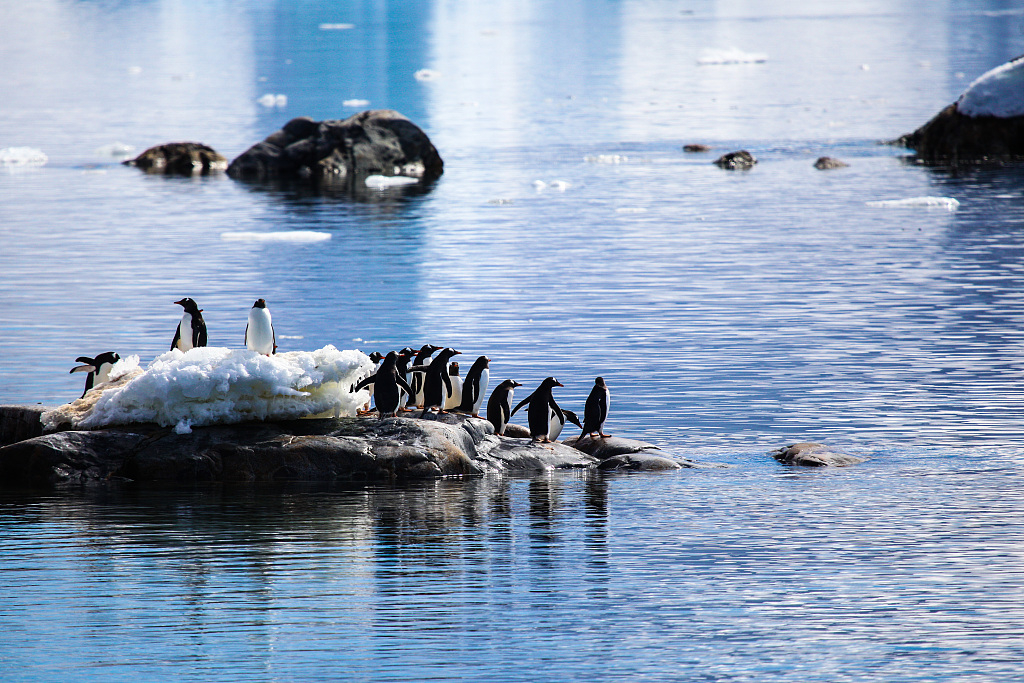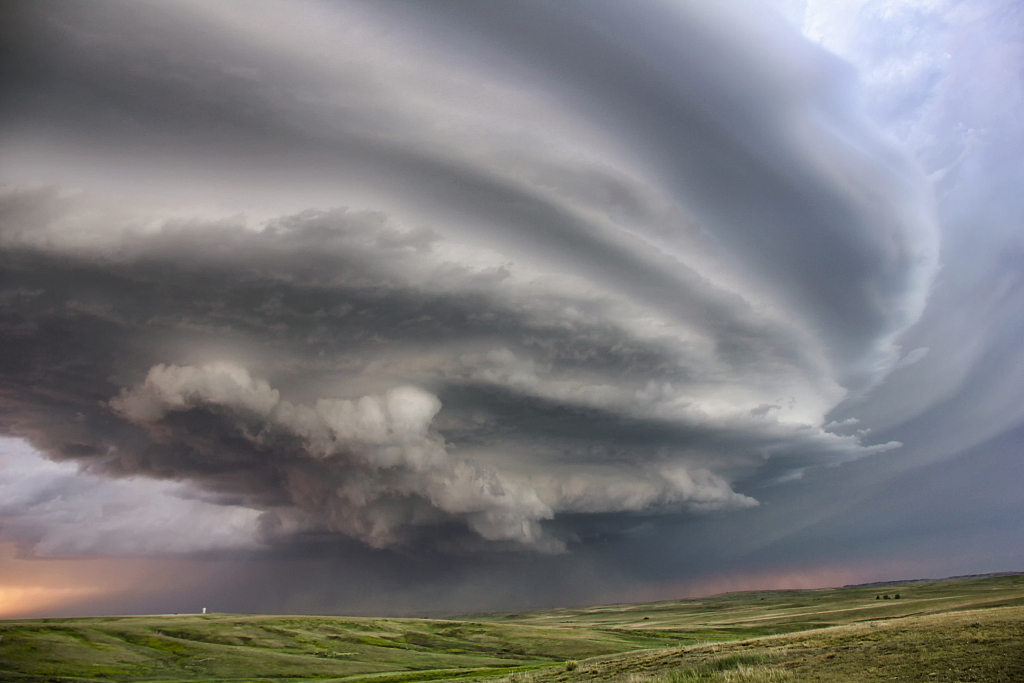
The same oceans that nourished human evolution are poised to unleash misery on a global scale unless the carbon pollution destabilizing Earth's marine environment is brought to heel, warns a draft UN report obtained by AFP.
Destructive changes already set in motion – some irreversible – could see a steady decline in fish stocks, a hundred-fold or more increase in the damages caused by superstorms, and hundreds of millions of people displaced by rising seas, according to the Intergovernmental Panel on Climate Change (IPCC) "special report" on oceans and Earth's frozen zones, known as the cryosphere.
As the 21st century unfolds, melting glaciers will first give too much and then too little to billions who depend on them for fresh water, it finds.

Penguins rest on rocks. /VCG Photo
Without deep cuts to manmade emissions, at least 30 percent of the northern hemisphere's surface permafrost could melt by century's end, unleashing billions of tonnes of carbon and accelerating global warming even more.
The 900-page scientific assessment is the fourth such tome from the UN in less than a year, with others focused on a 1.5-Celsius (2.6-Farenheit) cap on global warming, the state of biodiversity, and how to manage forests and the global food system.
All four conclude that humanity must overhaul the way it produces and consumes almost everything to avoid the worst ravages of climate change and environmental degradation.

Storm. /VCG Photo
Governments meet in Monaco next month to vet the new report's official summary. The final advice to policymakers will be released on September 25. While the underlying science – drawn from thousands of peer-reviewed studies – cannot be modified, diplomats with scientists at their elbow will tussle over how to frame the findings, and what to leave in or out.
Oceans not only absorb a quarter of the CO2 we emit, they have also soaked up more than 90 percent of the additional heat generated by greenhouse gas emissions since 1970. Without this marine sponge, global warming would already have made Earth's surface intolerably hot for our species.
(Cover images via VCG. )
(If you want to contribute and have specific expertise, please contact us at nature@cgtn.com)

Copyright © 2018 CGTN. Beijing ICP prepared NO.16065310-3
Copyright © 2018 CGTN. Beijing ICP prepared NO.16065310-3